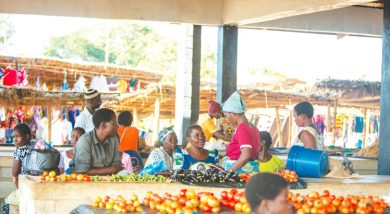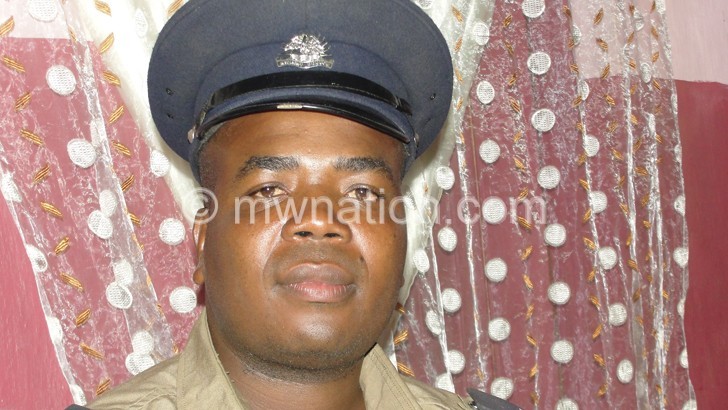Eight tussle in first presidential debate
Eight of the 12 candidates expected to appear on the presidential ballot paper during Malawi’s May 20 Tripartite Elections took part in the first-ever presidential debate held in the capital, Lilongwe today.
In attendance during the debate held as a “red carpet” event in the auditorium of the Bingu International Conference Centre (BICC) in Lilongwe were James Nyondo of National Salvation Front (Nasaf), Helen Singh of United Independent Party (UIP), Kamuzu Chibambo from People’s Transformation Party (Petra), United Democratic Front (UDF) torchbearer Atupele Muluzi, Friday Jumbe of New Labour Party (NLP), Lazarus Chakwera of Malawi Congress Party (MCP), Mark Katsonga Phiri of People’s Progressive Movement (PPM) and John Chisi of Umodzi Party (UP).

Conspicuously missing from the line-up were two of the front-runners, President Joyce Banda of People’s Party (PP) and Peter Mutharika of Democratic Progressive Party (DPP) as well as Davis Katsonga of Chipani Cha Pfuko (CCP) and George Nnensa who leads the Tisintha Alliance.
Media Institute of Southern Africa (Misa) Malawi Chapter and regional president Anthony Kasunda, who chaired the presidential debates taskforce, said the candidates had been given the opportunity to reflect to voters on policy issues while helping inform voters with the rare opportunity to compare promises on a level playing field.
Said Kasunda: “Some [of the candidates] indicated they would not participate, but we could not cancel because there are others willing to engage Malawians.”
Kasunda said Nnensa failed to attend the debate because he missed the flight to Lilongwe but indicated will attend the next debate whereas Mutharika also said would attend the next one.
On the other hand, Banda said she was busy with campaign and Katsonga wanted allowances, according to Katsonga.
From the onset, the candidates made strong cases to woo the votes from Malawians who tuned in to several radio stations and television stations addressing how they would tackle a wide range of issues including access to quality education, agriculture and food security, mining and promote peaceful co-existence.
But as expected, the debate among the candidates was full of rhetoric with promises to bring to Malawians a “new way of doing business” and “transformational leadership”.
Promises to adhere to the rule of law, upholding the Constitution were plenty, but not without blame game on what has gone wrong in the past, ranging from greed, lack of moral compass but also Malawians who have not held leadership to account.
During the debate moderated by Media Council of Malawi (MCM) chairperson the Reverend Patrick Semphere, on agriculture and food security, Chibambo told potential voters: “We need to diversify from maize alone, improve implementation of the subsidy programme which is full of thefts, increase access to markets for smallholder farmers and introduce mechanised farming to increase production.”
Most of the candidates agreed that introduction of universal subsidy to smallholder farmers and farmers clubs was the way to go in increasing food production with Katsonga Phiri adding that irrigation farming could not be ignored.
Katsonga Phiri managed to go halfway through his party’s 20-point plan as he tackled the questions, although time and again he had to be reminded that his 2 minutes allocated had run out.
Throughout debate, the candidates did not hesitate to criticise policies of the candidates who did not show up, with Nyondo saying motorbikes should be distributed to extension workers not young people to start passenger transportation business as PP was doing.
While the other candidates outlined plans for improving primary, secondary and tertiary education, Atupele went deeper to explain how his government would introduce incentives to ensure girls stay in school, discontinue quota system.
Said Atupele: “The solution to delivering quality education lies in how we use, prioritise and allocate resources. To improve education, we need a robust accountability system to enable us build schools and ensure equitable distribution of teaching and learning materials.”
However, Chakwera’s solution was to introduce systems that would be policy driven, practical and with political will while increasing access to tertiary education to all not just a selected few.
The eight candidates also outlined their ideas and plans for a corrupt free civil service, a ticking Constitution and adherence to rule of law and improving access to health.
The hype that accompanied the first-ever presidential runningmates debates such as clapping and ululating or even heckling was absent at the presidential debate in keeping with the international standards of presidential debates.
However, this did not please some of the patrons to the debate who expected to cheer on their candidates as they raised good points.
Access to the debate was also limited to a few representatives from political parties, civil society organisations, a few ordinary Malawians and the media which meant that only part of BICC auditorium was opened.
Kasunda said the Open Society Initiative for Southern Africa and UKAid-funded debates would be in three parts, the second of which would be held next week Tuesday in Lilongwe and the final debate on May 3 in Blantyre.
———————————–
—There are 12 presidential candidates contesting in the May 20 Tripartite Elections.
—Out of the 12, only eight pitched up for the debate last night at the Bingu International Conference Centre in Lilongwe.
—Conspicuously missing from the list on the podium were President Joyce Banda of People’s Party (PP), Peter Mutharika of Democratic Progressive Party (DPP), Davis Katsonga of Chipani Cha Pfuko and George Nnensa of Tisintha Alliance.
————————————–
READ MORE IN THE NATION tomorrow.
Follow @MalawiNation for debate tweets and MalawiNation on Facebook





